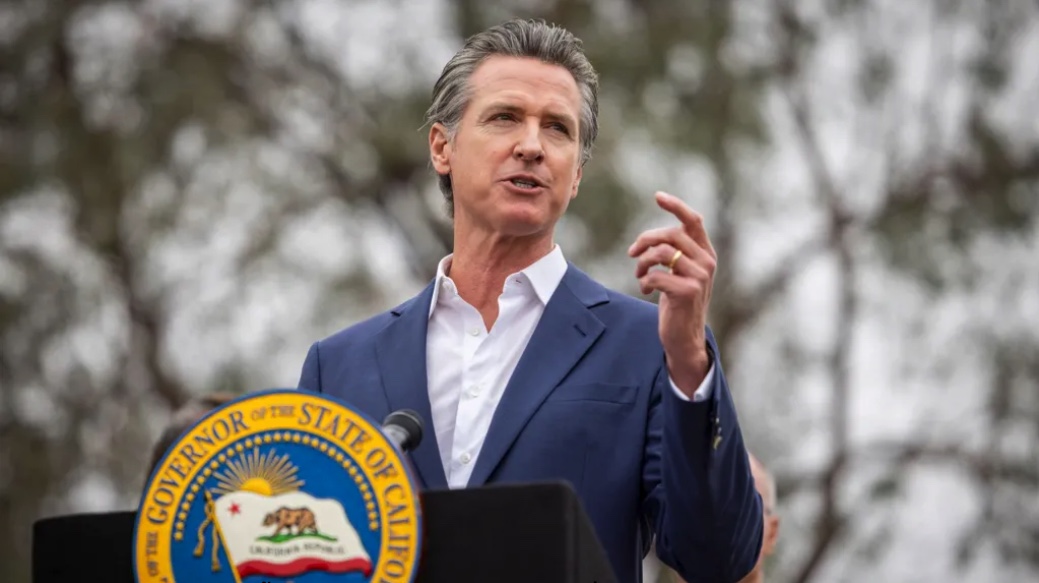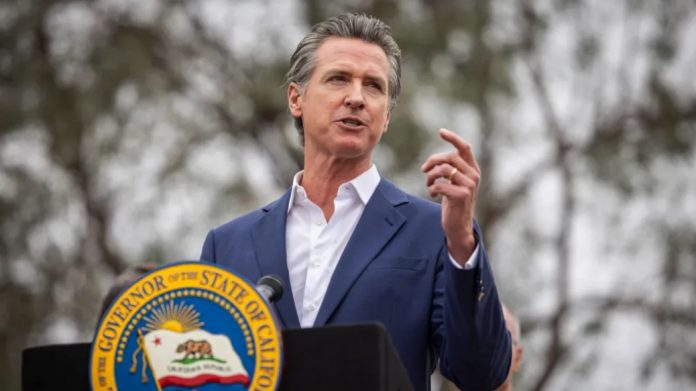ผู้ว่าการรัฐแคลิฟอร์เนีย เกวิน นิวซัม ได้ยับยั้งร่างกฎหมายความปลอดภัยด้านปัญญาประดิษฐ์ (AI) ที่ถือเป็นก้าวสำคัญ ซึ่งเผชิญกับการคัดค้านอย่างรุนแรงจากบริษัทเทคโนโลยีรายใหญ่ ร่างกฎหมายนี้จะเป็นการกำหนดกฎระเบียบแรก ๆ ที่เข้มงวดสำหรับ AI ในสหรัฐอเมริกา
นาย นิวซัม ระบุว่าร่างกฎหมายนี้อาจขัดขวางนวัตกรรมและทำให้ผู้พัฒนา AI ย้ายออกจากรัฐได้
วุฒิสมาชิก สกอตต์ วีเนอร์ ผู้เขียนร่างกฎหมายนี้ กล่าวว่า การยับยั้งครั้งนี้ทำให้บริษัทต่าง ๆ สามารถพัฒนาเทคโนโลยีที่มีประสิทธิภาพสูงโดยไม่ต้องอยู่ภายใต้การกำกับดูแลของรัฐบาล
ร่างกฎหมายนี้จะบังคับให้โมเดล AI ที่มีความก้าวหน้ามากที่สุดต้องผ่านการทดสอบความปลอดภัย
นอกจากนี้ยังจะบังคับให้ผู้พัฒนา AI ต้องตรวจสอบให้แน่ใจว่าเทคโนโลยีของพวกเขามี “สวิตช์ตัดการทำงาน” ซึ่งจะช่วยให้หน่วยงานสามารถแยกและปิดระบบ AI ได้หากพบว่าเป็นภัยคุกคาม
ร่างกฎหมายยังจะกำหนดให้มีการกำกับดูแลอย่างเป็นทางการสำหรับการพัฒนา “โมเดลฟรอนเทียร์” ซึ่งหมายถึงระบบ AI ต้นแบบที่ทรงพลังที่สุด
นาย นิวซัม กล่าวในแถลงการณ์ว่า “ร่างกฎหมายนี้ไม่ได้คำนึงว่า AI จะถูกใช้งานในสภาพแวดล้อมที่มีความเสี่ยงสูง มีการตัดสินใจที่สำคัญ หรือมีการใช้ข้อมูลที่ละเอียดอ่อนหรือไม่”
“แต่กลับกำหนดมาตรฐานที่เข้มงวดแม้กระทั่งกับฟังก์ชันพื้นฐานที่สุด — เพียงเพราะระบบขนาดใหญ่มีฟังก์ชันดังกล่าว” เขาเสริม
พร้อมกันนี้ นาย นิวซัม ยังประกาศแผนการปกป้องสาธารณชนจากความเสี่ยงของ AI และขอความช่วยเหลือจากผู้เชี่ยวชาญชั้นนำในการพัฒนามาตรการป้องกันสำหรับเทคโนโลยีนี้
ในช่วงไม่กี่สัปดาห์ที่ผ่านมา นาย นิวซัม ได้ลงนามในร่างกฎหมาย 17 ฉบับ รวมถึงกฎหมายที่มุ่งจัดการกับการบิดเบือนข้อมูลและ “ดีปเฟค” ซึ่งเป็นภาพ วิดีโอ หรือเสียงที่ถูกสร้างขึ้นด้วย AI
รัฐแคลิฟอร์เนียเป็นที่ตั้งของบริษัท AI ชั้นนำหลายแห่งในโลก รวมถึง OpenAI ผู้พัฒนา ChatGPT
บทบาทของรัฐนี้ในฐานะศูนย์กลางของบริษัทเทคโนโลยีรายใหญ่ของโลกทำให้ร่างกฎหมายใด ๆ ที่ควบคุมอุตสาหกรรมนี้จะมีผลกระทบอย่างใหญ่หลวงต่อทั้งในระดับประเทศและระดับโลก
นาย วีเนอร์ กล่าวว่า การยับยั้งร่างกฎหมายนี้ทำให้บริษัท AI ไม่มีข้อจำกัดที่บังคับใช้จากผู้กำหนดนโยบายของสหรัฐฯ โดยเฉพาะอย่างยิ่งเมื่อรัฐสภายังคงประสบปัญหาในการกำหนดกฎเกณฑ์ที่ชัดเจนสำหรับอุตสาหกรรมเทคโนโลยี
ความพยายามของรัฐสภาในการกำหนดมาตรการป้องกันสำหรับ AI ได้หยุดชะงักไปแล้ว
OpenAI Google และ Meta เป็นหนึ่งในหลายบริษัทเทคโนโลยีขนาดใหญ่ที่แสดงความเห็นคัดค้านร่างกฎหมายนี้ และเตือนว่ากฎหมายดังกล่าวจะขัดขวางการพัฒนาเทคโนโลยีที่มีความสำคัญ
California governor blocks landmark AI safety bill

The governor of California Gavin Newsom has blocked a landmark artificial intelligence (AI) safety bill, which had faced strong opposition from major technology companies.
The proposed legislation would have imposed some of the first regulations on AI in the US.
Mr Newsom said the bill could stifle innovation and prompt AI developers to move out of the state.
Senator Scott Wiener, who authored the bill, said the veto allows companies to continue developing an “extremely powerful technology” without any government oversight.
The bill would have required the most advanced AI models to undergo safety testing.
It would have forced developers to ensure their technology included a so-called “kill switch”. A kill switch would allow organisations to isolate and effectively switch off an AI system if it became a threat.
It would also have made official oversight compulsory for the development of so-called “Frontier Models” – or the most powerful AI systems.
The bill “does not take into account whether an Al system is deployed in high-risk environments, involves critical decision-making or the use of sensitive data,” Mr Newsom said in a statement.
“Instead, the bill applies stringent standards to even the most basic functions – so long as a large system deploys it,” he added.
At the same time, Mr Newsom announced plans to protect the public from the risks of AI and asked leading experts to help develop safeguards for the technology.
Over the last few weeks, Mr Newsom has also signed 17 bills, including legislation aimed at cracking down on misinformation and so-called deep fakes, which include images, video, or audio content created using generative AI.
California is home to many of the world’s largest and most advanced AI companies, including the ChatGPT maker, OpenAI.
The state’s role as a hub for many of the world’s largest tech firms means that any bill regulating the sector would have a major national and global impact on the industry.
Mr Wiener said the decision to veto the bill leaves AI companies with “no binding restrictions from US policy makers, particularly given Congress’s continuing paralysis around regulating the tech industry in any meaningful way.”
Efforts by Congress to impose safeguards on AI have stalled.
OpenAI, Google and Meta were among several major tech firms that voiced opposition to the the bill and warned it would hinder the development of a crucial technology.
By John da Silva, BBC News

















